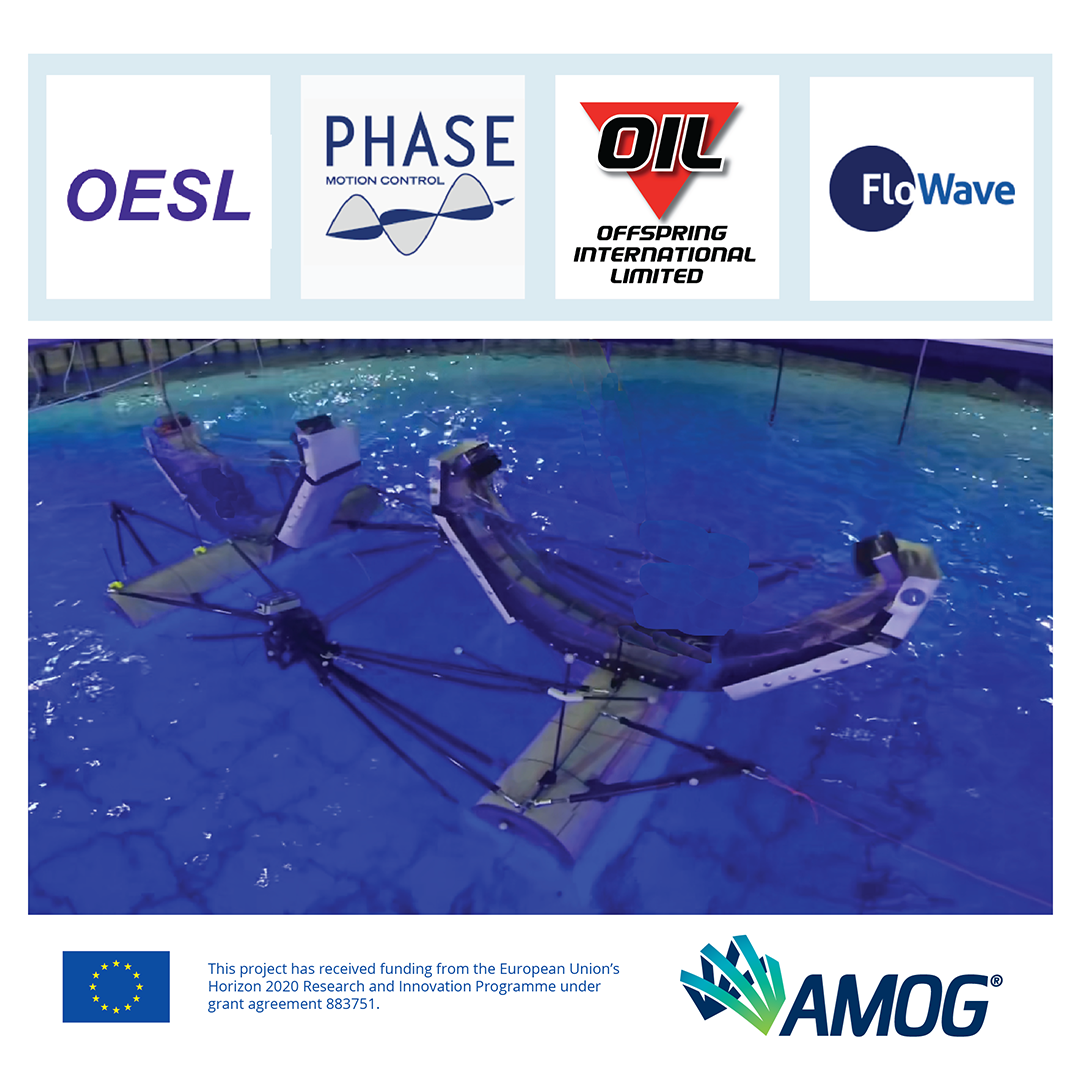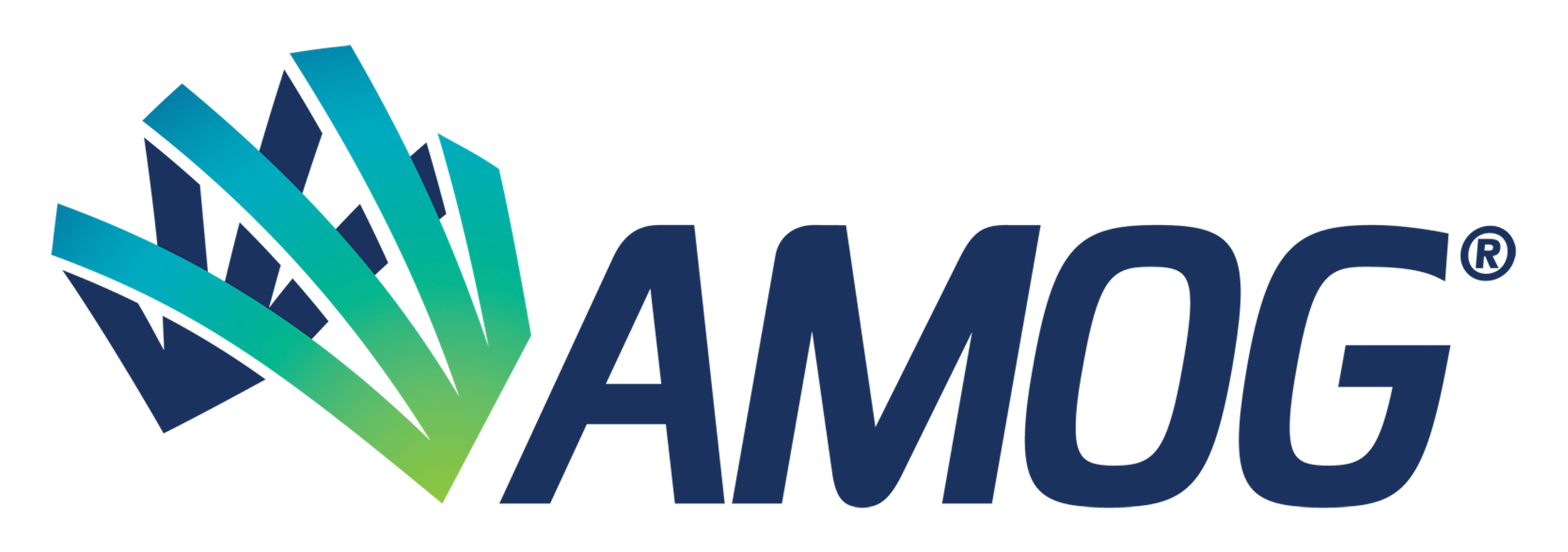AMOG is pleased to announce the successful completion of Model Testing of the Sea-Saw Wave Energy Converter (WEC) at the FloWave circular tank facility within the University of Edinburgh, Scotland. The tests took place as part of the EuropeWave Pre-Commercial Procurement (PCP) programme.
The AMOG Sea-Saw WEC, designed and built at model scale, includes integrated power take off units to enable direct power take off measurements. AMOG is pleased to announce that this was one of the most successful power-producing tests to date, and these tests will now underpin our development of a grid scale wave energy converter.
The testing campaign included a series of IEC regular wave and irregular wave specification tests, along with robustness checks on quartering conditions.
AMOG’s guiding principles for developing WEC technology are:
1. All moving parts in air and above the sea surface Improved reliability.
Easier inspection and maintenance. Reduced operating costs.
2. High TRL sub-systems using COTS tech
Reduce technical risk. Reduced cost of sub-system components (incl PTO).
3. Design with installation front of mind
Use of conventional catenary mooring lines and anchors enables installation by a single vessel.
4. Fully maintainable offshore incl PTOs
Easily accessible PTOs enables changeout by a single vessel whilst the WEC remains on its mooring.
5. Power in long period swell AND shorter period wind driven waves
Hinge linked hulls with their independent PTOs and the resulting “Sea-Saw” motion maximises power production periods.
It was the first three of these five principles that stood AMOG in good stead with AMOG’s WEC Gen 1 single hull device; which worked the first time it was deployed offshore Cornwall in 2019. In a rapidly evolving renewable energy sector, AMOG built upon this success, and added principles #4 and #5 for the development of the Sea-Saw WEC technology.
AMOG has experience performing model basin tests for numerous clients, operating in different sectors and with a range of floating structures. This experience, complementing the company’s expertise in areas such as floating systems, moorings and mooring integrity, and cables, provides a solid foundation of work to progress advances in wave and offshore renewable energy technologies.
We are proud to be leading an international consortium which involves major partners Ocean Energy Systems Ltd of the UK, Phase Motion Control of Italy, Offspring International Ltd of the UK, FloWave in the UK, and minor partner MechAdept.
This is part of the EuropeWave project that has received funding from the European Union’s Horizon 2020 Research and Innovation Programme under grant agreement No 883751.


